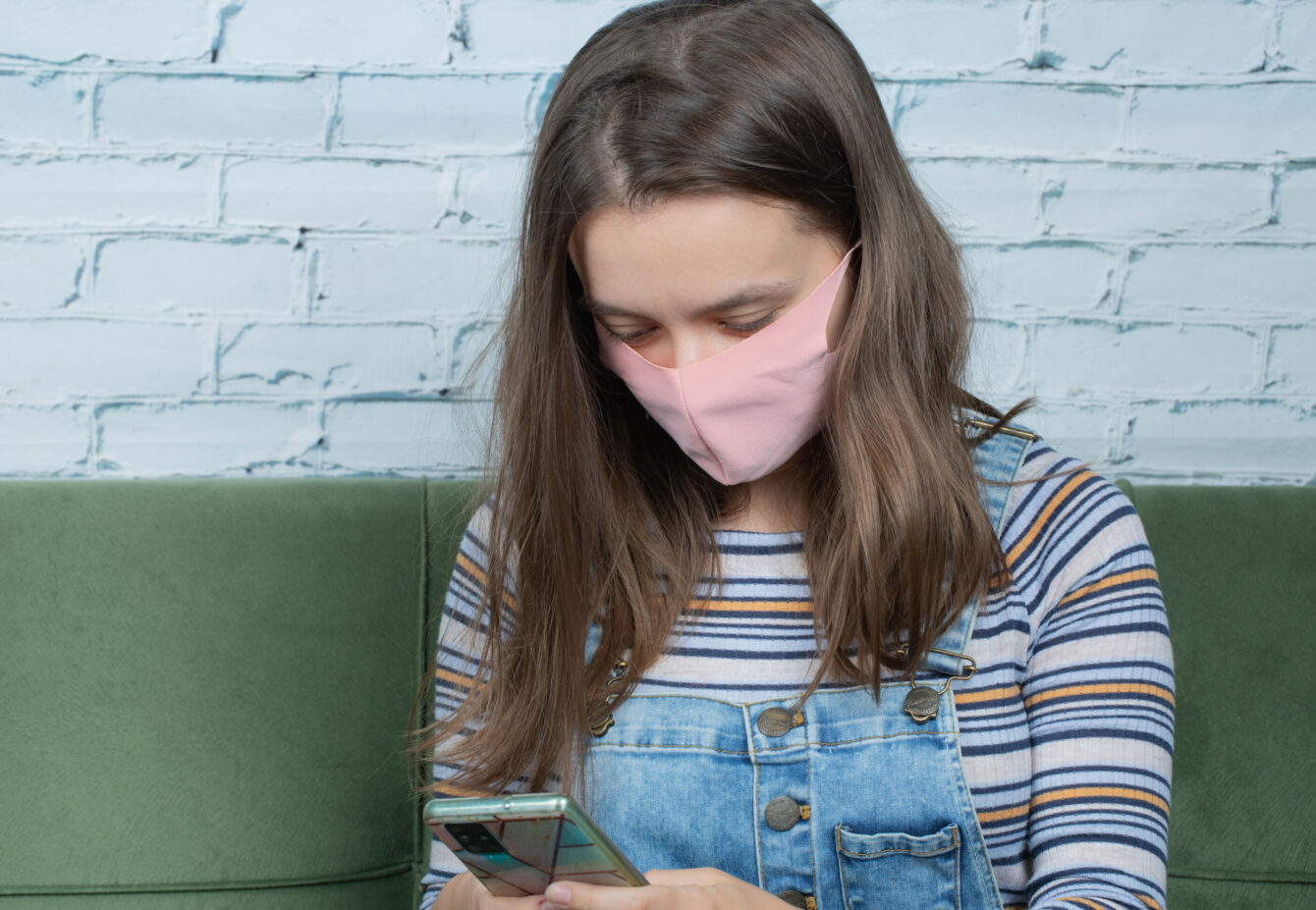Guideline Adverse effect of Digital Technologies on Adolescent Mental Health during COVID-19 pandemic

To mark Children’s Mental Health Week 2024 (5 – 11 February), we are shedding light on the intricate relationship between depression, anxiety, and the use of digital technologies among adolescents during the COVID-19 pandemic. In this recently published study, researchers have revealed increases in depression and anxiety symptoms among a diverse and representative sample of adolescents.
The Study of Cognition Adolescents and Mobile Phones (SCAMP) is the largest study of its kind investigating the impact of mobile phones and social media on young people’s brain function, cognitive development, and physical and mental health, supported by the NIHR, MRC and AHSC. Researchers at the Mohn Centre were able to use this cohort data to show the deterioration of adolescent mental health during the pandemic.
Adolescents are known to be vulnerable to mental illness, with depression and anxiety being the most common. It is suggested that there are also associations between greater technology use and poorer mental health outcomes in young people. With 97% of 12–15-year-olds and 100% of 16–17-year-olds owning a mobile phone in the UK, this study sought to understand the relationship between these factors within the context of the COVID-19 pandemic.
The research, available in the Journal of Medical Internet Research, hopes to catalyse discussions among parents, educators, and mental health professionals, as it not only underscores the challenges faced by adolescents but also emphasises the importance of acknowledging their voices in the discourse on mental health.
Key findings:
- Increase in depression and anxiety symptoms: The study identified clear increases in depression and anxiety symptoms reaching clinical thresholds in adolescents throughout the COVID-19 pandemic, compared to pre-pandemic assessments in the same cohort.
- Gender disparities: Females were more likely to develop depression and anxiety during the pandemic than males, highlighting gender-specific vulnerabilities during adolescence.
- Ethnicity variations: Ethnic minority groups were not associated with increased levels of depression or anxiety.
- Digital technology use and sleep: Pre-pandemic high mobile phone use and insufficient sleep were associated with new incidents of depression during the pandemic.
- Social media and video gaming: The use of social network sites and video gaming were associated with depression and anxiety, suggesting potential short-term impacts on mental health during the pandemic.
- No significant impact of public health measures: Depression and anxiety levels did not differ significantly according to socio-economic factors or public health measures, indicating that mental health impacts are enduring and not dependent on immediate context.
Dr Chen Shen, Research Associate in Epidemiology, said: “Previous evidence has shown a high prevalence of depression and anxiety in young people during the COVID-19 pandemic. However, it is difficult to assess the impacts of the pandemic without information on the pre-pandemic symptom levels for comparison. Our findings indicate a surge in the prevalence of clinical depression and anxiety during the pandemic, more than doubling compared with the pre-pandemic assessments in the same group of people.
“The impacts on mental health are enduring, so we recommend continued surveillance of adolescents’ mental health to facilitate the provision of appropriate mental health services for this vulnerable group. It is also imperative that sufficient resources are allocated to high-risk groups, for example, girls and those with high mobile phone use and sleep problems.”
The SCAMP longitudinal cohort study, which commenced in 2014, provides a nuanced understanding of the interplay between digital technology use and mental health outcomes. As the world navigates the complexities of the ongoing pandemic, the findings offer valuable insights into the unique challenges faced by this demographic.
With ‘My Voice Matters’ as the central theme of this year’s Children’s Mental Health Week, the research prompts society to listen to the experiences of adolescents and recognise the impact of their digital interactions on mental health. The week-long initiative encourages open conversations, promotes support systems, and seeks to empower adolescents to express their thoughts and concerns regarding their mental well-being.
In a world where digital technologies play an increasingly prevalent role in the lives of young people, understanding the implications of their usage on mental health is crucial. The research not only addresses the current concerns but also paves the way for future studies and initiatives to foster a healthier and more supportive environment for adolescents, ensuring that their voices truly matter.





